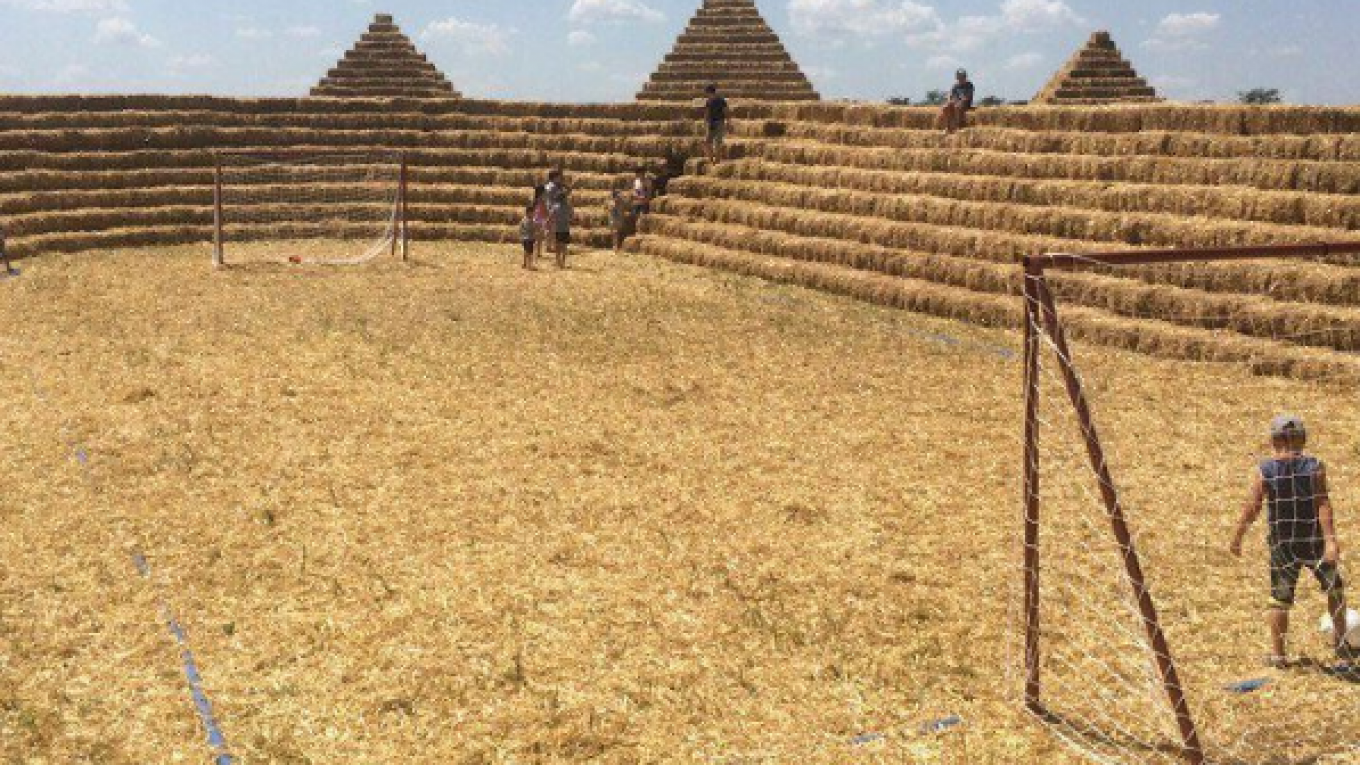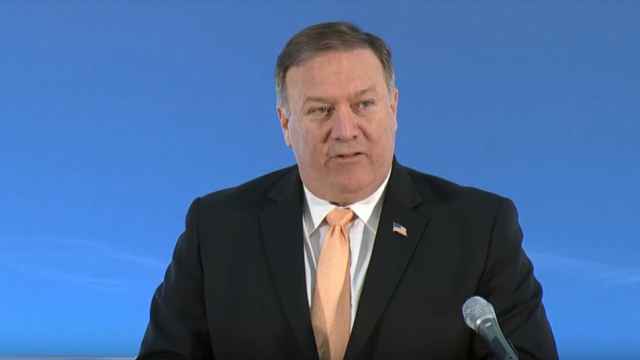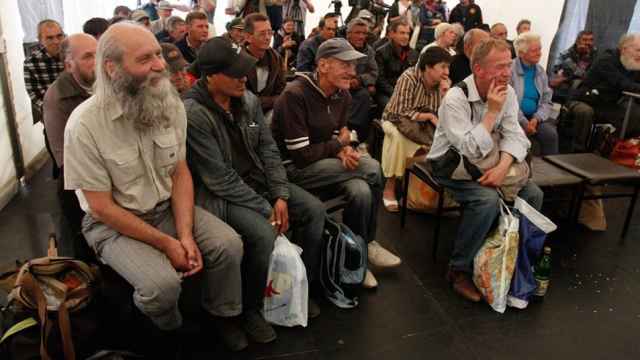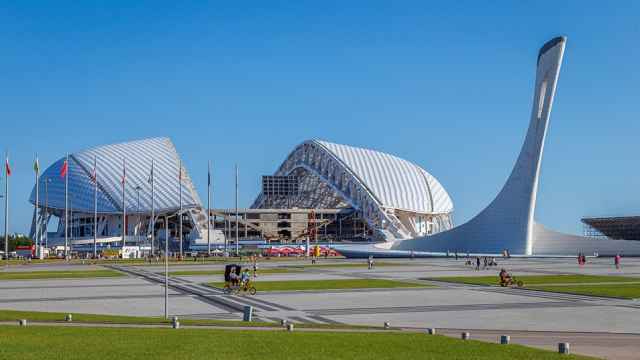Russia has spent lavishly on preparations for the 2018 FIFA World Cup, building massive new stadiums across the country.
Most of the financing comes from public-private partnerships between the government and major corporations, including those of billionaire Aras Agalarov, whose ties to the Trump campaign are now being investigated.
A group of more modest farmers, however, are also getting into the act, by building their own Zenit Arena in the village of Krasnoye in the Stavropol region, the Sports.ru website reports.
This new stadium is entirely made of straw, cost about 40,000 rubles ($673 USD) and took precisely five days to build.
At the entrance, a tongue-in-cheek sign reads: “Not a single ruble was stolen during the construction of this stadium.”
The choice to call it “Zenit Arena” was done “for laughs,” said the stadium’s director, farmer Roman Ponomarev.
The rural arena stands in stark contrast to the new stadium on St. Petersburg’s Krestovsky Island designed by world renowned Japanese architect, Kisho Kurakawa. The stadium has been an object of controversy for its exorbitant cost, delayed construction, and building site conditions.
“At first [the authorities] said that the [St. Petersburg] stadium would cost 6 billion rubles, then 48 billion rubles; finally, it turned out that it hadn’t even been completed yet. [Our straw stadium] is intended to mock this debacle,” said Ponomarev.
Last year, Reuters reported that the total cost of the 2018 World Cup in Russia would amount to 620.9 billion rubles ($8.2 billion).
At the end of July, the straw stadium builders will stage a “World Cup for Straw Football,” with referees, teams and trophy cups, Ponomarev said.
A Message from The Moscow Times:
Dear readers,
We are facing unprecedented challenges. Russia's Prosecutor General's Office has designated The Moscow Times as an "undesirable" organization, criminalizing our work and putting our staff at risk of prosecution. This follows our earlier unjust labeling as a "foreign agent."
These actions are direct attempts to silence independent journalism in Russia. The authorities claim our work "discredits the decisions of the Russian leadership." We see things differently: we strive to provide accurate, unbiased reporting on Russia.
We, the journalists of The Moscow Times, refuse to be silenced. But to continue our work, we need your help.
Your support, no matter how small, makes a world of difference. If you can, please support us monthly starting from just $2. It's quick to set up, and every contribution makes a significant impact.
By supporting The Moscow Times, you're defending open, independent journalism in the face of repression. Thank you for standing with us.
Remind me later.






